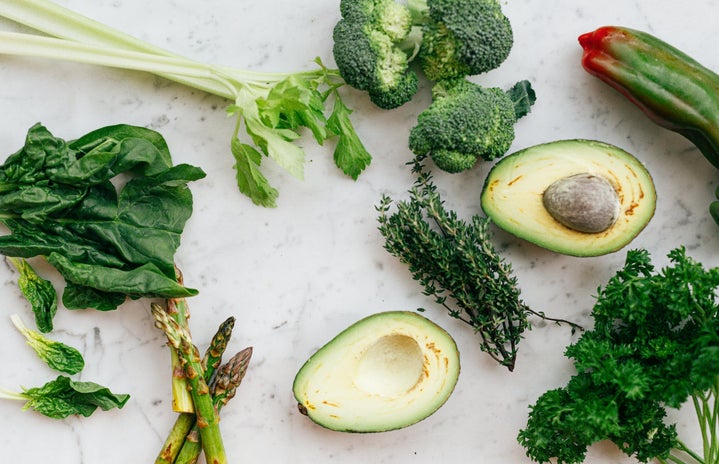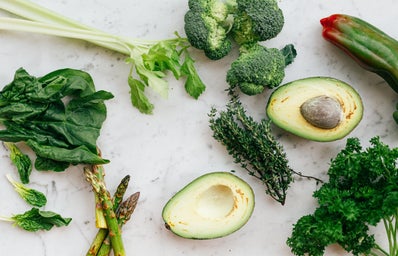‘Veganuary’ is the concept of staying vegan, during the month of January. This week, Georgia shares her own experience of tackling the challenge, as well as providing some context on why this has become more popular in the last few years.
Many of us like to start the new year off with certain resolutions with hopes of self-improvement. For me, I decided to join in on the increasingly popular Veganuary. This phenomenon, and veganism in general, has become undoubtedly prominent in all spheres of media. Whichever side of the debate you are on, it is impossible to entirely discount the benefits of veganism.
Personally, I decided to participate in this resolution, due to environmental as well as moral reasons. With the ever-present salience of climate change, many forms of research indicate towards the environmental benefits of a vegan diet. I must admit that I have been vegetarian for about a year now and so the transition towards veganism is not as difficult for me as those going from a meat-based diet.
The production of meat and dairy is a huge contributor to global greenhouse gas emissions. Moreover, while the agricultural community is also a large contributor to carbon emissions, the majority of what is produced is used for livestock. One University of Oxford study, for example, concluded that a vegan diet could reduce someone’s carbon footprint from food by up to 73%. Initially the environment was the sole reason for my shift to vegetarian and mostly for my attempt at Veganuary.
However, I have since done more research into the moral argument and have to admit that I’m pretty much sold.
I don’t plan for this article to become a rant on why killing animals is wrong and how immoral meat and dairy production is, but if you are interested then I would highly recommend Alex J. O’Connor’s discussion of it, here.
Many interpret veganism through certain misconceptions. Firstly, many claim that a vegan diet is not healthy for the human body. And yet, any quick research will show that all major medical institutions, The American and British Dietic Associations as well as the NHS, all agree that it is possible to have a perfectly balanced and healthy vegan diet. However, saying this, it is also untrue to suggest that all vegans are inevitably healthy. Trust me, just like any other diet, it is very easy to be unhealthy as a vegan. A final misconception is that a vegan diet is much more expensive. Though there are certainly expensive elements to being vegan, particularly with specific meat-substitute brands and trendy vegan restaurants, I have found that cutting out meat and instead focusing on fresh produce can be economically efficient.
Ultimately, it might be questioned as to whether this Veganuary period actually has a lasting and favourable impact. The Independent suggests that this trend may be counter-productive as during January, a month of relatively low seasonal fruit and vegetable production, imports rise hugely.
Should we instead be urging general cutting down of consumption as opposed to just switching to the extreme for a short period?
On the other hand, stats from the Veganuary organisation itself indicate that most participants do at least intend to cut down their animal and dairy consumption following the month. Following the 2021 Veganuary, 40% of those they surveyed planned to stay vegan and 85% planned to permanently change their diet.
There are of course some downsides to a vegan diet. This may sound rather petty, but I do find it a pain to inspect all the labels of your favourite crisp packets, hoping egg or milk won’t appear. Also as suggested, a vegan diet does not equate to a healthy diet, and it is important to ensure a balanced diet. This is especially the case when getting enough vitamins, protein and iron as well as calcium. And yet, as said, all of this is possible.
A commitment to veganism generally comes down to motivation. Personally, I would urge anyone to at least start with cutting down on their meat and dairy consumption. It may be easier to start with a pescatarian or vegetarian diet as opposed to full-on vegan. I have yet to decide if I will remain vegan as I have to admit that I do rather miss cheese. However, it has been extremely easy to remove products like eggs and milk from my diet as a proud oat milk lover, and I will continue to do so.
So, although January may be over, it is not too late to attempt a somewhat vegan diet and you may find, like me, that it is easier than expected.


